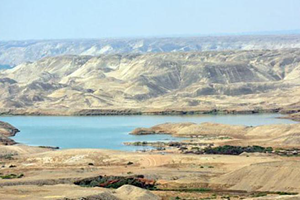In response to the growing water scarcity exacerbated by prolonged droughts and climate change, the Government of Cyprus has approved a comprehensive strategy aimed at expanding its desalination capacity. The plan, which has received approval from the Council of Ministers, includes a combination of immediate, medium-term, and long-term measures designed to tackle the worsening water crisis. The objective is to increase water supply by over 15 million cubic metres annually.
To provide immediate relief, four mobile desalination units have been authorized:
- The Garyllis River Bed in Limassol, with a daily production capacity of 10,000 cubic metres, at a cost of €3.4 million.
- Limassol Port, which will produce between 5,000 and 10,000 cubic metres of water daily, with an investment of €4.2 million.
- The EAC Moni Power Station, with a daily production of 10,000 cubic metres, at a cost of €6.7 million.
- The Paphos Marina Area, which will provide 5,000 to 10,000 cubic metres daily, at an expenditure of €4.5 million.
Additionally, sites at Larnaca Port and in Famagusta are under evaluation for similar desalination facilities. These mobile units are expected to collectively produce 41 million cubic metres of water between 2025 and 2030, as part of a €66.4 million investment.
The long-term solutions focus on upgrading five existing permanent desalination plants, increasing their capacity by up to 50%. Two new permanent plants are also planned for Moni and Dhekelia through public-private partnerships. Furthermore, the Water Development Department is exploring potential sites in Mazotos and free Famagusta for future projects.
Beyond desalination, the government also aims to utilize boreholes for irrigation, enhance water supply infrastructure, and launch public awareness campaigns to encourage reduced domestic water consumption.
This ambitious initiative highlights the government's dedication to addressing the challenges of water scarcity and ensuring the sustainability of water resources for the future.











